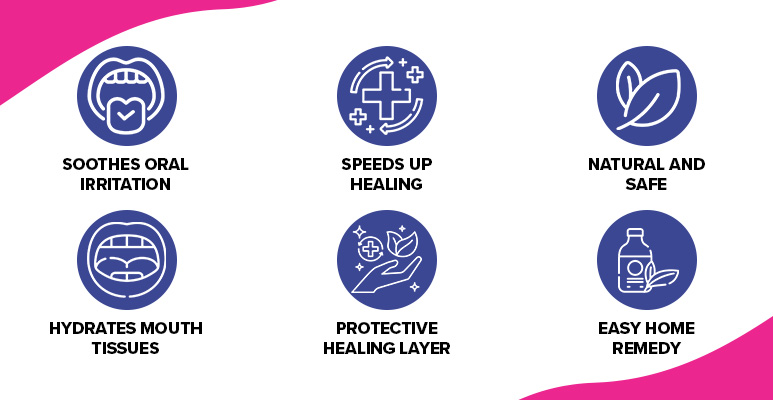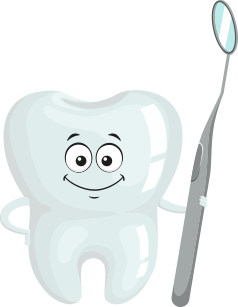Glycerine: A Natural Remedy for Mouth Ulcers

The sharp sting when you bite into something spicy, the discomfort that makes it hard to speak, and that constant urge to find relief — mouth ulcers are more than just minor irritations. They interfere with daily comfort, affect your diet, and often show up uninvited and without warning.
While pharmacy aisles are packed with chemical-based gels and rinses, many are now turning to gentler, more natural solutions. Among the most trusted options, glycerine stands out as a proven natural remedy for mouth ulcers — widely recognized for its soothing, healing, and protective qualities.
Whether used in home care routines or recommended by dental experts, glycerine offers a simple, effective way to relieve pain and accelerate healing — without harsh side effects. So, what makes glycerine work so well? And how can it fit into both personal care and professional dental treatment plans?
Let’s dive deeper into how this natural remedy for mouth ulcers works, the science behind its healing action, and best practices for using it safely and effectively.
What Are Mouth Ulcers?
Mouth ulcers, medically known as aphthous ulcers, are small lesions that develop in the soft tissues of your mouth or at the base of your gums. Though usually harmless, they can be painful and interfere with daily activities such as eating and talking.
Common Causes:
- Minor injuries from dental work or accidental bites
- Stress or hormonal changes
- Nutritional deficiencies (B12, iron, folic acid)
- Food sensitivities (spicy or acidic foods)
- Viral or bacterial infections
- Underlying health issues like Celiac disease or Crohn’s

Glycerine: The Natural Soothing Agent
Glycerine, or glycerol, is a colorless, odorless, and viscous liquid commonly used in pharmaceutical formulations. Derived from plant oils, it is known for its humectant properties – meaning it retains moisture and creates a protective layer over surfaces.
Why Glycerine Works for Mouth Ulcers?
- Moisture Retention: Prevents ulcers from drying out and cracking, aiding faster healing.
- Protective Layer: Shields the affected area from external irritants like food and saliva.
- Pain Relief: Reduces inflammation and eases pain naturally.
- Antimicrobial Action: Slows down bacterial growth, keeping the ulcer area clean.
How to Use Glycerine for Mouth Ulcers?
Direct Application:
-
- Wash hands thoroughly.
- Dip a clean cotton swab in food-grade glycerine.
- Apply directly onto the ulcer.
- Avoid eating or drinking for at least 20 minutes.
Glycerine Mouth Rinse:
-
- Mix 1 tsp of glycerine with 1/2 cup lukewarm water.
- Swish in the mouth for 30 seconds.
- Spit and avoid rinsing immediately.
Repeat 2-3 times daily for best results.
Clinical Insight: Is Glycerine Safe?
Yes. Glycerine is generally safe for topical use in the mouth when it’s food or pharmaceutical grade. Dentists often recommend it due to its non-toxic nature and proven benefits in soft tissue repair.
However, excessive or incorrect use can sometimes lead to over-drying. Always consult with a professional at a reputed dental clinic in Chennai to tailor treatments to your needs.
Natural Remedy vs OTC Treatments: How Glycerine Compares
| Feature | Glycerine | OTC Ulcer Gels |
|---|---|---|
| Natural and Non-Toxic | Yes | Often contains synthetic agents |
| Readily Available | Yes | Yes |
| Moisture Retention | Excellent | Varies |
| Long-Term Use | Safe | May cause side effects |
| Cost-effective | Very affordable | Can be expensive |
Best Practices While Using Glycerine
To get the most out of glycerine as a natural remedy for mouth ulcers, follow these practical tips:
- Always Use Pure Glycerine: Avoid industrial or scented versions.
- Apply at Night: Overnight application helps enhance healing.
- Monitor Ulcers: If no improvement is seen within 7 days, seek professional help.
- Hydration and Diet: Keep your mouth hydrated and avoid irritants like spicy, acidic foods.
- Oral Hygiene: Regular brushing and flossing using a soft toothbrush reduce recurrence.
Prevention Tips from Experts
While glycerine treats the symptoms, prevention is always better. Follow these strategies to minimize the chances of recurring ulcers:
- Avoid Mouth Trauma: Use a soft-bristle brush, and stay cautious while chewing.
- Manage Stress: Incorporate stress-relief practices like meditation.
- Maintain Nutritional Balance: B12 and iron supplements can help, if prescribed.
- Regular Dental Visits: Schedule professional checkups at a trusted dental clinic in Adyar or dental clinic in Chromepet to detect any underlying conditions early.
When to Consult a Dentist?
While glycerine is an excellent short-term solution, some mouth ulcers may signal deeper issues. Seek professional dental care if:
- The ulcer persists for more than 2 weeks
- Ulcers are unusually large or painful
- You develop high fever or swollen lymph nodes
- They recur frequently or in clusters
At Radiant Dental Care, our team emphasizes the importance of early diagnosis and natural interventions for oral health challenges. Glycerine is a valuable tool in our holistic approach.
The Science Behind Glycerine and Wound Healing
Glycerine’s therapeutic value in wound healing is supported by research:
- Cell Regeneration: Glycerine promotes epithelial regeneration, helping oral tissue to rebuild faster.
- Antioxidant Role: It counters oxidative stress in soft tissue injuries.
- Moisture Maintenance: Encourages natural hydration in mucosal linings, expediting healing.
This blend of natural science and accessible care makes glycerine a go-to solution in many dental clinic in Chennai setups.
Combining Glycerine with Other Remedies!
For even better outcomes, consider combining glycerine with these supportive treatments:
- Honey: Offers additional antibacterial protection.
- Coconut Oil: Soothes inflamed tissues.
- Aloe Vera Gel: Provides cooling and healing benefits.
However, always use one primary treatment at a time to evaluate effectiveness.
Small Remedies, Big Impact!
Glycerine might appear simple, but its role as a natural remedy for mouth ulcers is powerful. From healing properties to ease of use, it’s an accessible solution that fits into both professional and at-home care routines.
If you’re dealing with persistent oral issues or are unsure about the cause of recurring ulcers, consult experts at Radiant Dental Care. With locations across Chennai, including dental clinic in Adyar and a dental clinic in Chromepet , our team ensures that your smile stays healthy, naturally.
Frequently Asked Questions:
Can glycerine cure mouth ulcers permanently?
Ans. Glycerine is an effective natural remedy for mouth ulcers, helping to reduce pain, speed up healing, and provide soothing relief. However, it is not a permanent cure if the root cause of the ulcers—such as nutritional deficiencies, stress, or underlying health conditions—is not addressed. It works best as a supportive, topical treatment alongside a balanced lifestyle and dental care.
How often should I apply glycerine to mouth ulcers for the best results?
Ans. For optimal results, it is generally recommended to apply glycerine 2–3 times a day directly to the affected area using a clean cotton swab or your fingertip. Allow it to sit on the ulcer for a few minutes without rinsing. This frequency ensures consistent moisture and protection, accelerating the healing process and minimizing irritation.
Is glycerine safe to use for children with mouth ulcers?
Ans. Yes, glycerine is considered safe for children, especially when using pure, food-grade glycerine. It is non-toxic and gentle on the sensitive mucous membranes in the mouth. However, it’s always advisable to consult with a pediatric dentist or healthcare professional before using any remedy regularly on children to rule out allergies or other concerns.
Should glycerine be used directly or diluted before application?
Ans. Glycerine can be used undiluted directly on the ulcer for maximum effect, especially if it’s food-grade and safe for oral use. If a patient has particularly sensitive oral tissues or if there’s irritation, mixing glycerine with a few drops of rosewater or water can help reduce sensitivity while still providing relief.

 +91 9513446186
+91 9513446186
